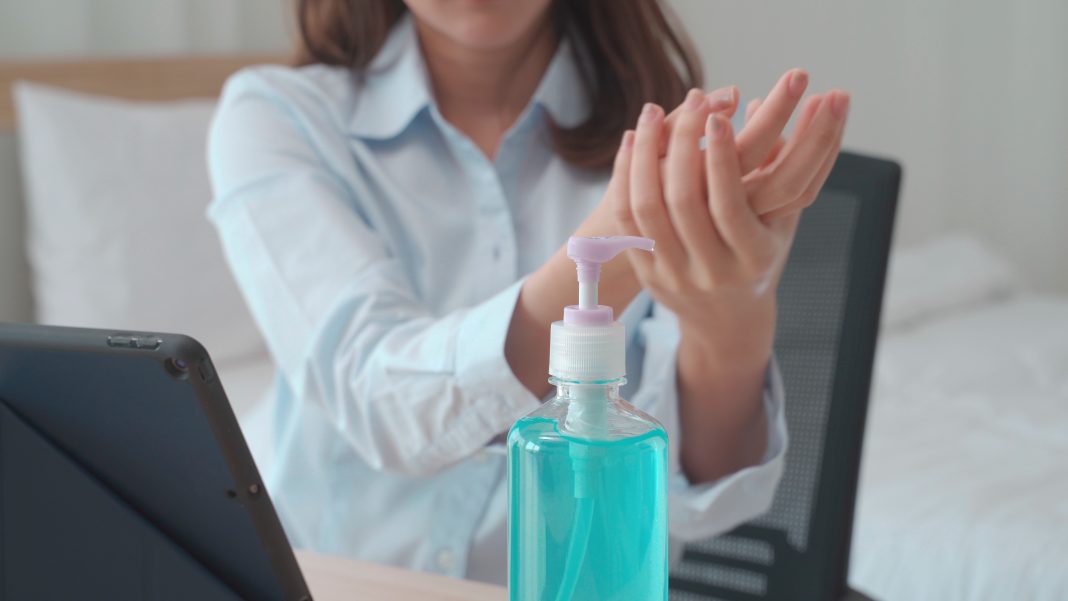Alcohol has become an extremely unpopular skincare ingredient, even though it can be extremely helpful. At least some of that reputation is because people are still traumatized by whatever pungent, stinging toner they used in middle school. But even more of it is, sadly, straight-up misinformation. In this article, we will give you some surprising facts about alcohol and your skin.
First, we will take a look at alcohol and why it’s used in cosmetics. Next, we will discuss finding the right alcohol for your skin and how it can be moisturized. Then, we will cover how alcohol sometimes causes irritation and wrap up with some more facts. Once you have finished reading, you will know these surprising facts about alcohol and your skin.

1Why It Is Used In Cosmetics
It’s common for cosmetics to use alcohol as either solvents or emulsifiers, and the kind used depends largely on molecular weight. Alcohols with low molecular weights, like isopropyl alcohol and ethanol (often listed as SD alcohol or denatured alcohol or alcohol denat on the ingredients lists), function as solvents. Encouraging ingredients that don’t want to dissolve in water do just that. They’re most often liquids and tend to evaporate pretty quickly.
That’s why lower molecular weight alcohols are so useful in achieving a specific product texture. Ingredients like isopropyl alcohol, alcohol denat or SD alcohol, methanol, and ethyl alcohol make a product feel lighter on the skin and dry quickly. They feel nice, especially if you have oily skin.

2How To Find The Right Alcohol
It comes down to how much of which alcohol there is in a product, how you use it, and whether or not it’s suited to your skin type. Here are some basic ground rules to keep in mind. If you have very oily skin, you might want low molecular weight alcohol in a product because it can remove excess oil. But someone who has more sensitive skin might find that drying or irritating.
People with dry skin should look for products with higher molecular weight alcohol that give a more moisturizing feel, like cetyl and stearyl. Those with sensitive skin, especially those with eczema, should use caution when it comes to all alcohol. They may find that even those moisturizing, high molecular weight alcohols are irritating. In that case, stick with something like Vaseline or Aquaphor.

3Can Be Moisturizing
High molecular weight or “fatty” alcohols, like cetyl, stearyl, and cetearyl alcohol, mainly keep oil and water emulsions from separating. But they also add some extra emollience to the final product, which means that it helps make the outer layer of the skin feel smoother and softer. Typically, these alcohols are derived from the fatty acids in plant and/or vegetable oils, hence the term “fatty alcohols.” They’re thick, waxy, and often totally solid at room temperature.
Fatty alcohols, like cetyl, stearyl, cetearyl, and behenyl, have the opposite effect of low molecular weight alcohols when it comes to how they feel on your skin. They make a product feel thick and luxurious, with a heavy texture. They can also act as a moisturizer. They help protect the skin, draw in a little bit of moisture, and enhance the natural lipid barrier, so if you see one of these listed on an ingredients list (like cetearyl alcohol in a moisturizer), that’s why it’s probably there.

4Can Cause Irritation
Using too much of either kind of alcohol can have some drawbacks. Solvent-type alcohols are great for increasing water solubility and evaporating quickly, but they can take some of the water in your skin with them when they do. The increased skin penetration they provide is wonderful for active ingredients but not so good for potential irritants, like heavy fragrances and essential oils.
Even their ability to degrease a shiny nose can be problematic; because they break down grease, solvent alcohols can break down the lipids in the outer barrier of our skin. A compromised stratum corneum can make your skin even more sensitive and irritation-prone than it already is. In high concentrations or with heavy use, solvent-type alcohols can be pretty drying and irritating.

5More Facts About Alcohol
For starters, there are about a zillion different kinds of alcohol. When you hear the word alcohol, your mind probably goes to one of two places: the alcohol you drink or rubbing alcohol – neither of which sounds like something you want on your face. But, in reality, that barely scratches the surface.
Alcohols are extremely diverse, encompassing everything from the fun part of wine to rubbing alcohol to retinol and beyond. All alcohols do share that hydroxyl group. But they can have vastly different structures with different molecular weights, and that’s what determines how each type of alcohol plays with your skin and other ingredients in a skincare product.

Even though it can be extremely helpful, alcohol has become an extremely unpopular skincare ingredient. People are still traumatized by whatever pungent, stinging toner they used in middle school. More of it is, sadly, straight-up misinformation. In this article, we gave you some surprising facts about alcohol and your skin.
First, we took a look at why alcohol is used in cosmetics. Next, we discussed finding the right alcohol for your skin and how it can be moisturizing. Then, we covered how alcohol can sometimes cause irritation and finished up with more facts about alcohol. Now that you have finished reading, you know these surprising facts about alcohol and your skin.

